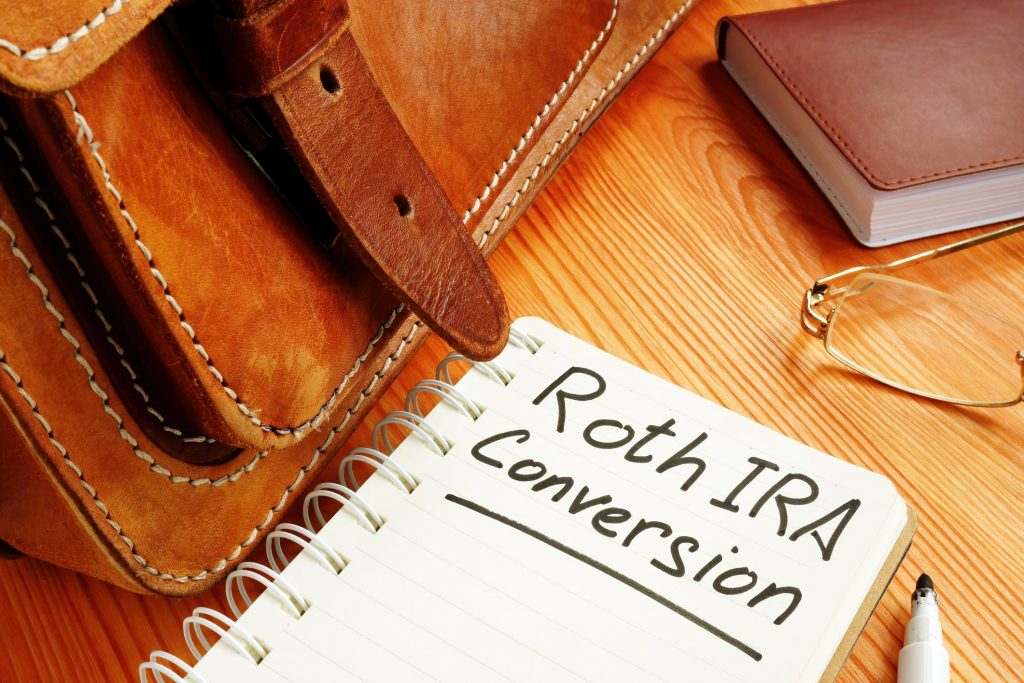
Saving for retirement throughout your career may have left you with investments in several different types of accounts.
By the time you retire, you could have a 401(k) from work, an IRA for additional retirement savings, and a taxable brokerage account on top of that.
The savviest investors will take the opportunity in their earliest retirement years to convert as much of their savings as possible to a Roth IRA. Here are three reasons why.
1. You can take better control of your taxes
While you want your retirement nest egg to grow as big as possible, you’ll want to minimize your withdrawals from traditional retirement accounts. Since you’ll pay income tax on any amount you withdraw from those accounts, you’ll want to make those withdrawals when it’s most advantageous for your tax liability.
If you’re in a position to delay taking Social Security benefits, the first few years of retirement may be an ideal time to make those withdrawals. Since you likely won’t have any other sources of income, you can fill up the lower tax brackets with IRA withdrawals.
But you don’t want to lose the opportunity for the tax-free growth you’ll get from converting traditional IRA funds to a Roth IRA. That allows you to pay your low tax liability now, but you won’t pay any taxes on that IRA money again, no matter how much your Roth account grows.
If you can manage to live off long-term capital gains from a taxable account in the first few years of retirement, and convert an amount in the lower tax brackets from your IRA to a Roth each year, you’ll end up with an exceptionally low effective tax rate in retirement.
2. There are no required minimum distributions early in retirement
One thing that can mess up your tax planning in retirement is required minimum distributions (RMDs). Once you turn 72, the IRS forces you to make withdrawals from your retirement accounts. If you have a lot of money in those accounts, you could be required to withdraw more than you need. In many cases, it won’t be the most tax-efficient way to fund your retirement on a yearly basis.
The Roth IRA is exempt from required minimum distributions. So, converting as much as possible into a Roth before age 72 can save you a lot of hassle with tax planning. Not only will you have no worries about the tax liability on Roth withdrawals, but you’ll minimize your required minimum distribution. Hopefully, you can keep it at a very manageable level.
If you end up with an RMD that exceeds your retirement spending requirements, you cannot roll over those funds into a Roth IRA.
3. You can keep more of your Social Security benefits later on
Perhaps the biggest benefit of primarily withdrawing from a Roth IRA late in retirement is that it won’t affect how much of your Social Security benefits get taxed. Tax on Social Security benefits is based on combined income, which is the sum of half your Social Security benefits, your adjusted gross income, and nontaxable interest.
See the table below for how your combined income affects taxation on Social Security.
| Taxable percentage of Social Security | Combined income if filing as an individual | Combined income if filing jointly |
|---|---|---|
| 0% | Less than $25,000 | Less than $32,000 |
| 50% | $25,000 to $34,000 | $32,000 to $44,000 |
| 85% | Over $34,000 | Over $44,000 |
Roth IRA distributions don’t count toward your combined income, but traditional IRA distributions do.
Converting traditional IRA funds to a Roth IRA before you start taking Social Security benefits can provide double tax benefits. First you pay a low tax rate on the conversion, then you pay a low tax rate on your Social Security benefits.
It’s all about taxes
Ultimately, Roth conversions (and direct contributions, for that matter) are about controlling your tax rate. And the best opportunity to control your tax rate is when you have full control over your income. That’s the early years of retirement.
Take advantage of the opportunity if you can, but it’s not necessarily the best option for everyone. Some people don’t have the luxury of delaying Social Security, and others aren’t particularly worried about the effect of required minimum distributions. A Roth IRA is just one tool to help control your tax rate in retirement.
